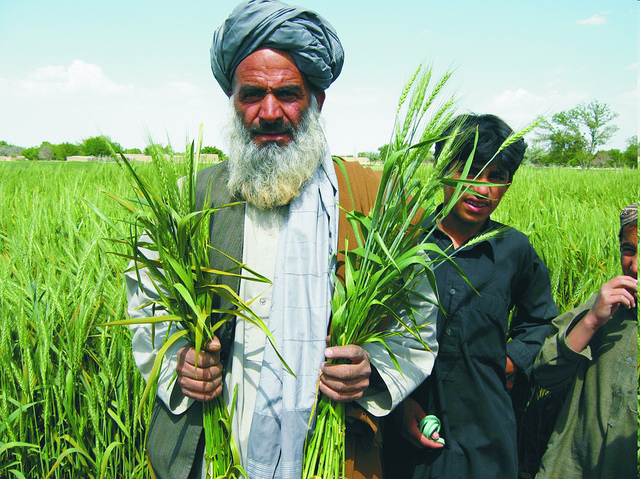Agriculture and the Rural Economy in Pakistan: Issues, Outlooks, and Policy Priorities, a new book by IFPRI researchers, was recently launched in Islamabad at the 32nd Annual General Meeting of the Pakistan Society of Development Economists, and at an event held at the National Agricultural Research Center. (On Jan. 25, it launches in a Washington.) The book presents robust evidence on the importance of agriculture to the country’s economic growth, ways to renew rural infrastructure, and enhance agricultural science, social equality, and the rural non-farm economy. In the past 30 years that IFPRI has been engaged in Pakistan, its cutting-edge evaluations and capacity building activities have helped shape a policy research agenda for the country to achieve economic growth and poverty reduction.
During 2011-2016, IFPRI implemented the Pakistan Strategy Support Program (PSSP)—a country-led and country-wide policy analysis and capacity strengthening program—designed to aid government leaders in designing and implementing evidence-based policy reforms and to encourage increased public investments in agriculture. With funding from the United States Agency for International Development and later from the CGIAR Research Program on Policies, Institutes, and Markets (PIM), PSSP helped develop a new agricultural seed law, promote reforms to fertilizer subsidies and the national water policy, and refine poverty measurement approaches. IFPRI’s evaluation of Pakistan’s fertilizer sector found that government regulations led to billions of dollars of lost government revenues and to inefficient and imbalanced use of fertilizers in wheat production. Partly due to these findings, the Government of Pakistan made adjustments in its fertilizer policies and packages in 2015-2016 to increase the efficiency of the subsidy program.
PSSP has also become a channel for building local capacity and research expertise through competitive grants awarded to Pakistani researchers to work on the country’s development objectives. Some of the awardees’ work had notable influence on policy. For example, a study by a grantee contributed to a new chapter in the Khyber Pakhtunkhwa Forest Act of 2011 that more sustainably regulates collection and harvesting of medicinal and aromatic plants.
One of IFPRI’s earlier influential research efforts focused on the country’s wheat policy, particularly the wheat rationing system. IFPRI’s assessment, in collaboration with the Pakistan Institute of Development Economics (PIDE), provided conclusive evidence that the rationing system failed to reach the poor. In fact, between 64 and 72 percent of the wheat was not purchased by poor consumers through the ration shops and only 5 percent of the rural poor used the ration system. Informed by these findings, the Government of Pakistan abolished the wheat rationing system in 1987. An independent impact assessment estimated that IFPRI’s examination of Pakistan’s wheat policies resulted in more than US$200 million in savings for the Pakistani government.
IFPRI’s innovative research and deep partnerships in Pakistan have contributed to the country’s agricultural transformation and rural development over the last three decades. For more information on IFPRI’s work and partnerships in Pakistan, please go to this brochure. IFPRI Pakistan office is currently undertaking several projects, including a four-year USAID-funded Program, Pakistan Agricultural Capacity Enhancement Program (PACE), 2016-2020.
Janna de la Paz is a Program Analyst at IFPRI. To view/download/print a PDF of this post, click here. For more about how IFPRI research is influencing stakeholders and policy debates around the world, see the Outcome Stories blog.







